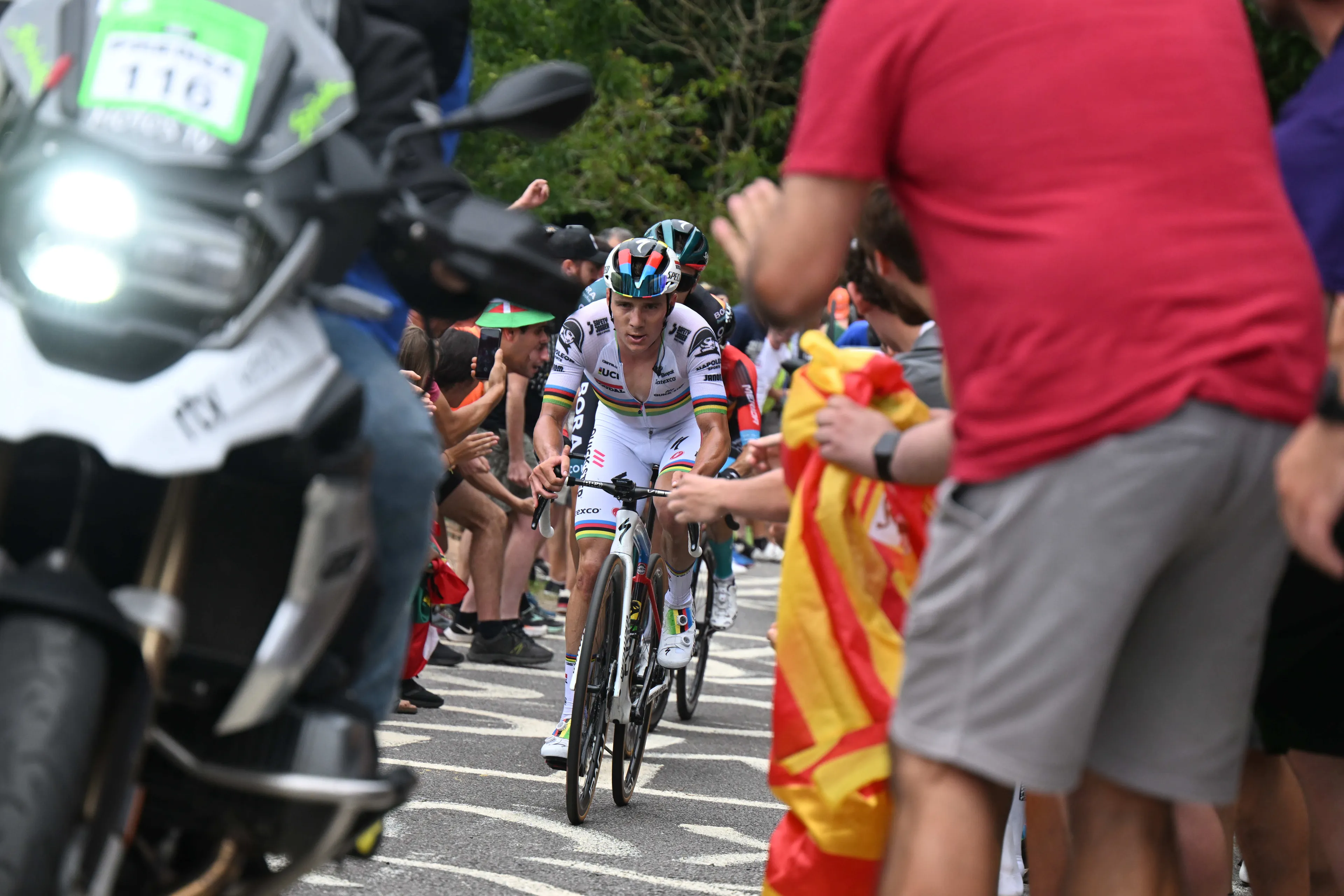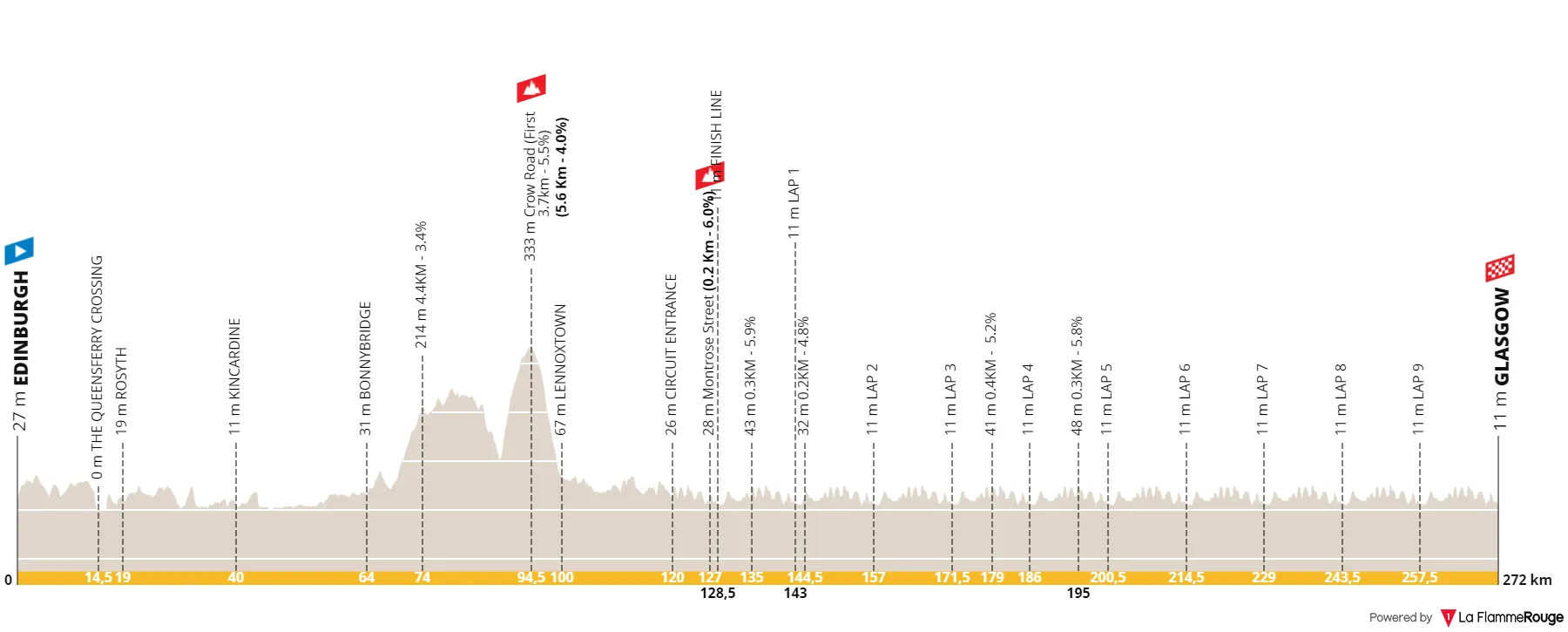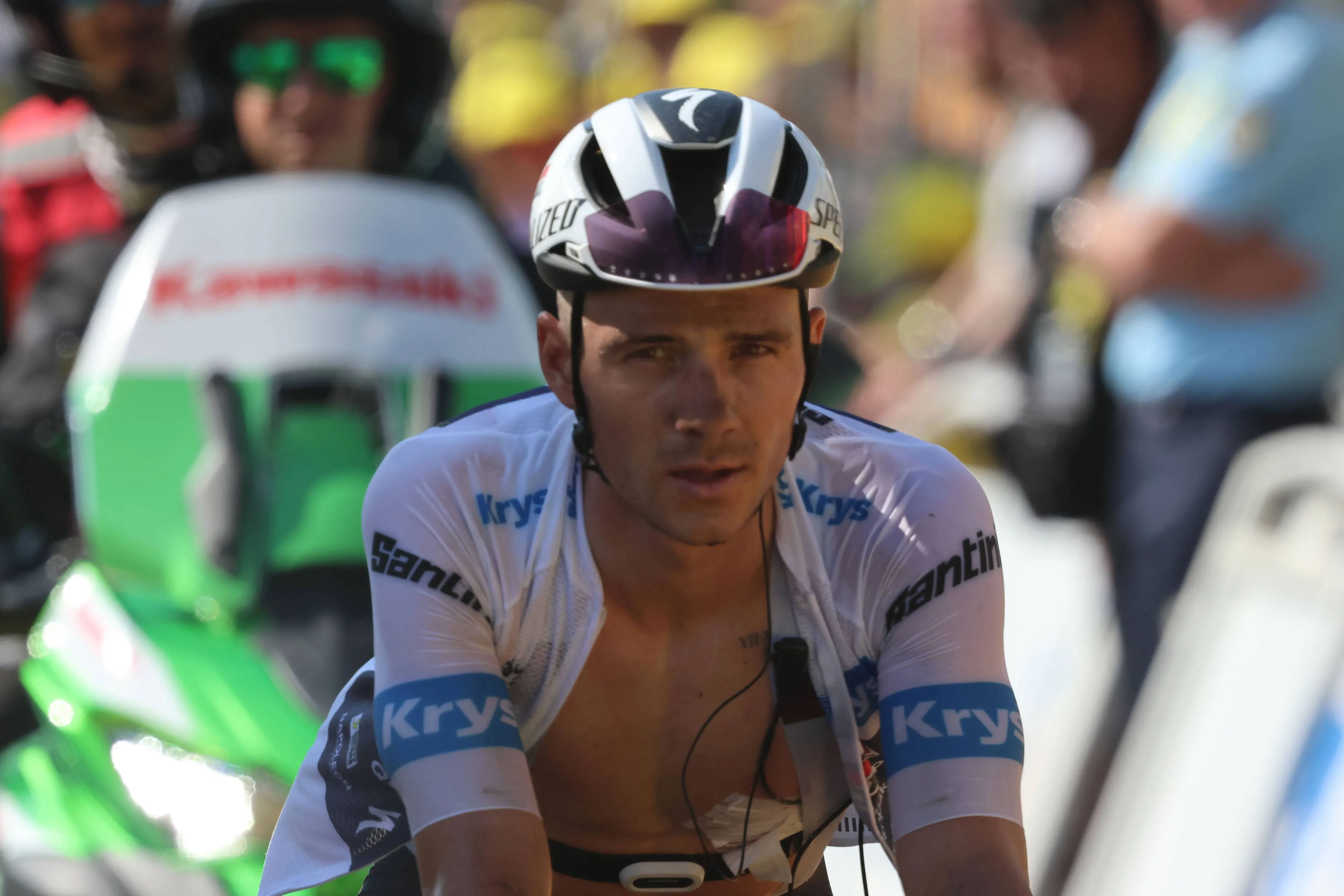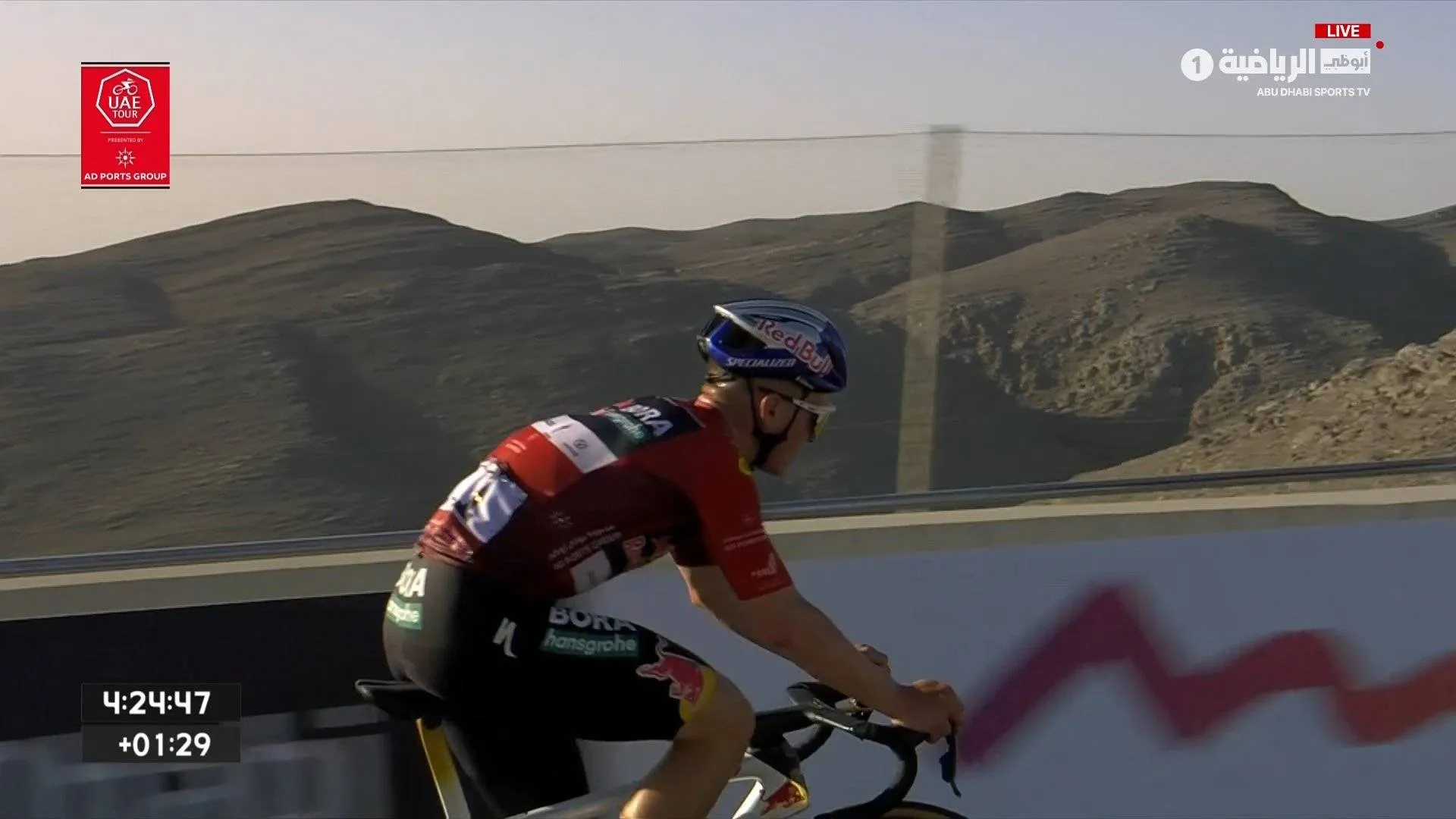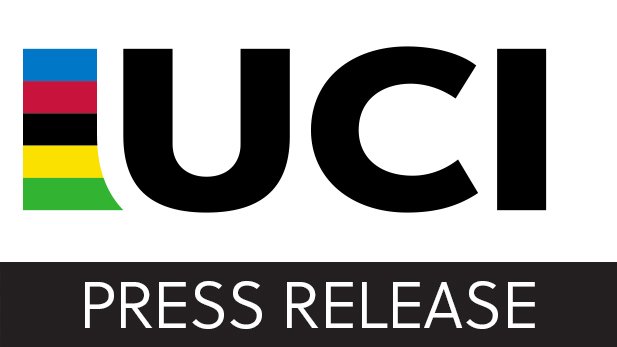UCI disqualifies Alex Baudin from Giro d'Italia after testing positive for Tramadol
CyclingMonday, 31 July 2023 at 17:22
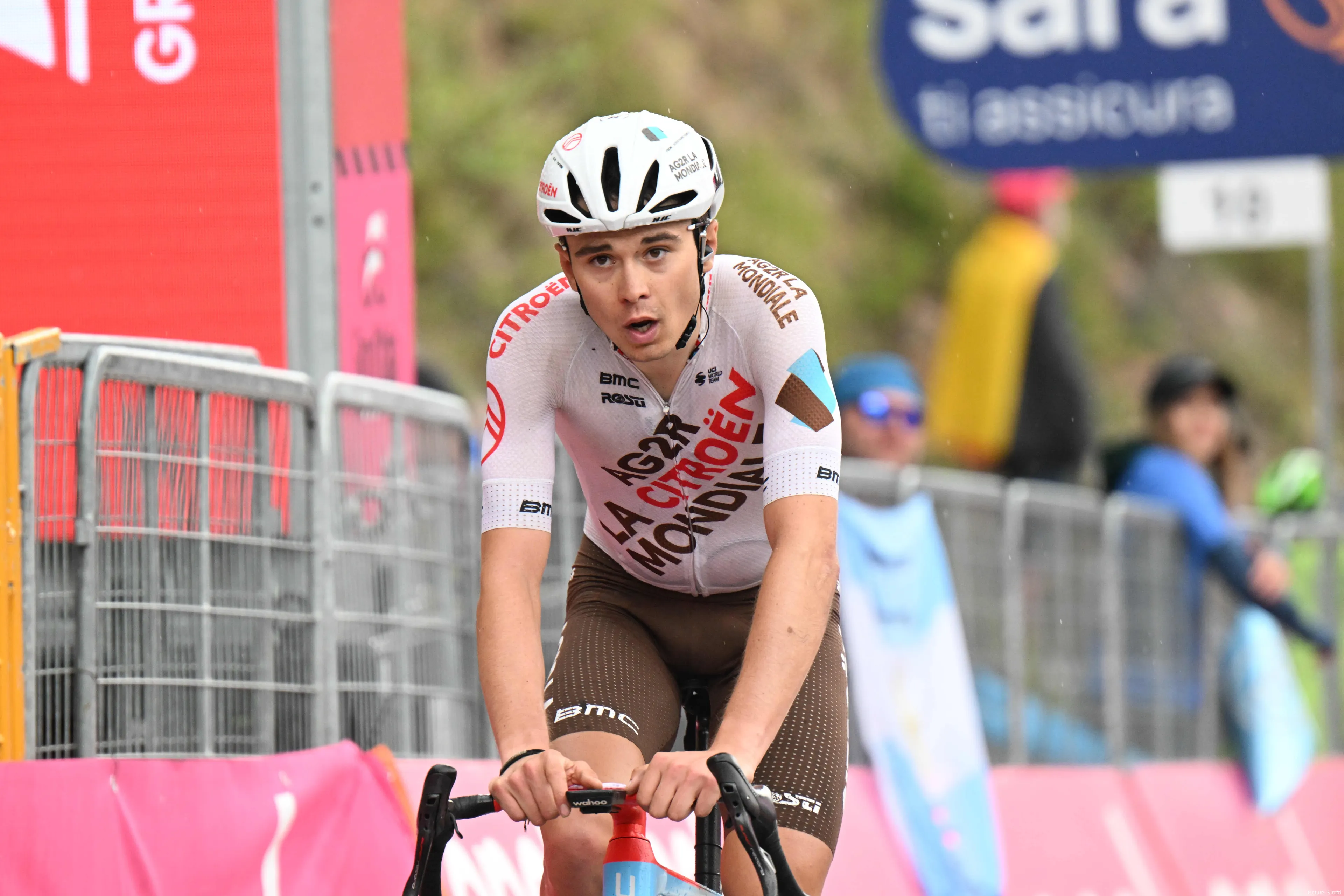
According to a statement issued by the UCI, Alex Baudin has been sanctioned for taking tramadol during the last Giro d'Italia. It is the same drug that Nairo Quintana consumed in the Tour de France 2023 and for which he was also sanctioned. We'll see what AG2R Citroën does about the rider.
The case that led to this sanction was initiated during the 17th stage of the Giro d'Italia 2023, when a dried blood sample provided by the rider was taken on May 24. The results of the analysis of the sample revealed the presence of tramadol and its two main metabolites.
Read also
As a consequence of this infraction, and in accordance with the regulations set out in the UCI Medical Regulations, Alex Baudin has been disqualified from the 2023 Giro d'Italia. However, the rider has the option to appeal this decision before the Court of Arbitration for Sport (CAS) within the next 10 days (we assume that he will not take the same path that Nairo Quintana took and that makes him remain without a team).
Importantly, a total of 64 dried blood samples were collected during the Giro d'Italia 2023 as part of the tramadol program, as part of the UCI's efforts to ensure the integrity of the competition.
Despite the seriousness of the infraction, the sanction imposed on Alex Baudin has an important nuance. Violations of the in-competition tramadol ban are considered offenses under the UCI Medical Regulations, but are not considered anti-doping rule violations. As this is the first time the rider has incurred such a violation, he has not been declared ineligible and is therefore still eligible to participate in future competitions.
Read also
The ban of tramadol in cycling competitions is a measure that the UCI implemented as of March 1, 2019, in all disciplines and categories, with the aim of protecting the health and safety of riders, due to the adverse side effects of this substance. It is important to highlight that this substance will also be banned by the World Anti-Doping Agency (WADA) as of January 1, 2024.
The dried blood samples used in this process are collected by the International Testing Agency (ITA) using the dried blood spot (DBS) reference method. These sample collection kits, developed by the Swiss company DBS Systems, allow minimally invasive testing by drawing a small amount of blood from the cyclist's fingertip.
Analysis of the samples is carried out independently at the Laboratory of Clinical Pharmacology and Toxicology at the University of Geneva, using a peer-review method to determine the presence or absence and amount of tramadol and its two major metabolites. The results are then sent to the Center for Research and Expertise in Anti-Doping Sciences (REDs) at the University of Lausanne for a final independent review.
Finally, the results are managed by the ICU Medical Director, who makes decisions in accordance with the Medical Regulations established by the organization.
Read also
claps 0visitors 0
Just in
Popular news
Latest comments
- Fantastic climb by Tiberi. Let’s see more of this from him.Pedalmasher19-02-2026
- Loved watching this finale. Brutal climb, looked like a brand new Middle Eastern Alpe d'Huez with those switchbacks on the mountain edge. So much grit on Del Toro's face. I really thought he might catch Tiberi with about 1500m to go. Great stage.antipodeanpedalfan19-02-2026
- You’re expecting cycling to stay immune from this type of conjecture when the worlds’ most watched and listened to figure spouts out similar unsubstantiated crap daily? Most people just follow bad example because it’s a lot easier than figuring out a good one. Anyway, it could be anything, perhaps he just knew Andrew too well, or Sir Jim didn’t want him helping any more of those pesky foreigners and paid him off ;-) He doesn’t seem the Epstein type but if that was it, kudos to him for being practically the only one to resign BEFORE being found out. I find it very concerning that no-one has much to say about any of these people who keep at it until they just can no longer claim their innocence. Who did they learn from, Lance?Mistermaumau19-02-2026
- If you are going to make comments like that, back it up with proof. Otherwise keep them to yourself.Searider18-02-2026
- In the same place as the outcry over boys vs girls losing weight, which, is in about the same place as boys vs girls getting hit, or abused.Mistermaumau18-02-2026
- Haha.awp18-02-2026
- That's a little extreme, you take wins where you can get them.awp18-02-2026
- Ironic no, a British boss of British companies has no problem outsourcing a large proportion of jobs to foreigners and then complains a proportion of that proportion actually lives in the country. And do you expect if you leave that no-one will take your spot?Mistermaumau18-02-2026
- Slowly slowly the youngsters are making more and more of an impact.Mistermaumau18-02-2026
- I agree for certain situations, especially camps and popular training destinations but teams can’t manage or afford to chaperone all their riders all the time. Off season they still have to train and want to be home as much as they can (this is also where they are easiest to « catch »). On the other hand, if riders like Tadej accept « invitations » to ride on certain roads just for promotional purposes like in Gran Canaria they are also responsible for any trouble it attracts, you can’t expect people to stay away once you deliberately notify where you’re going to be and when. SeemsMistermaumau18-02-2026
Loading
📰 #COMUNICADO | #DOPING 💊 La UCI ha anunciado a través de un comunicado que el ciclista Alex Baudin (AG2R) "ha sido sancionado por infringir la prohibición de uso de tramadol en competición". x.com/UCI_media/stat…
Write a comment

